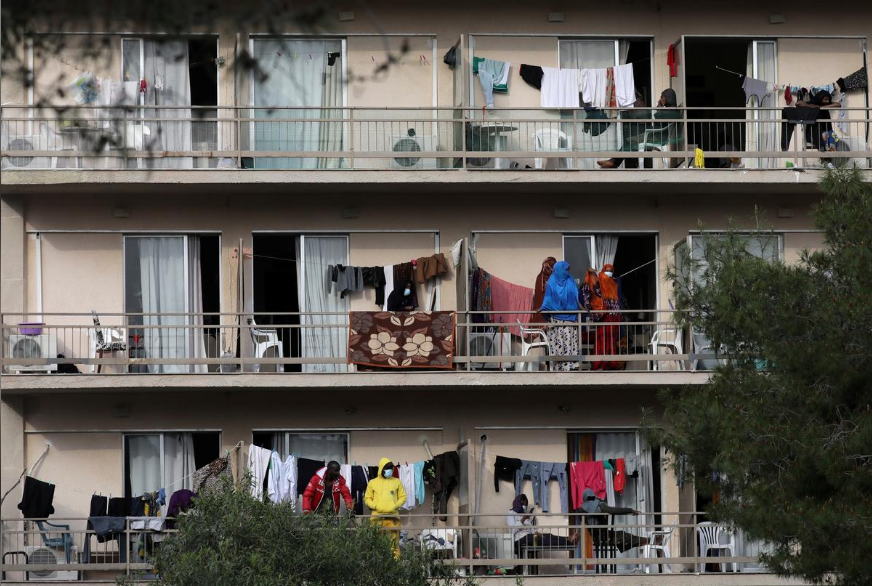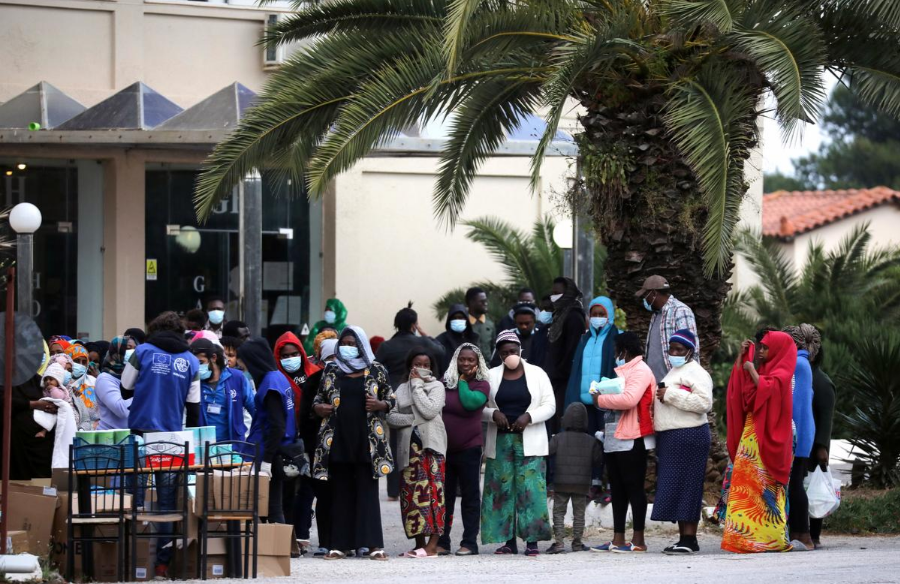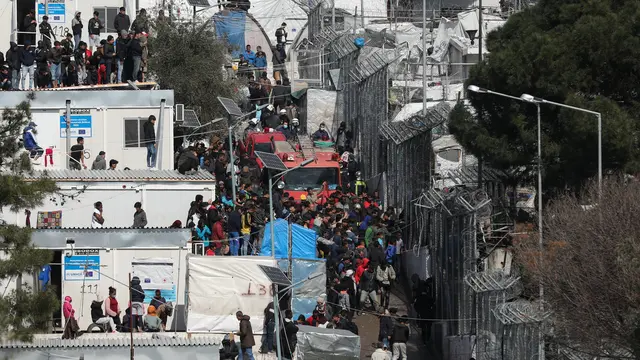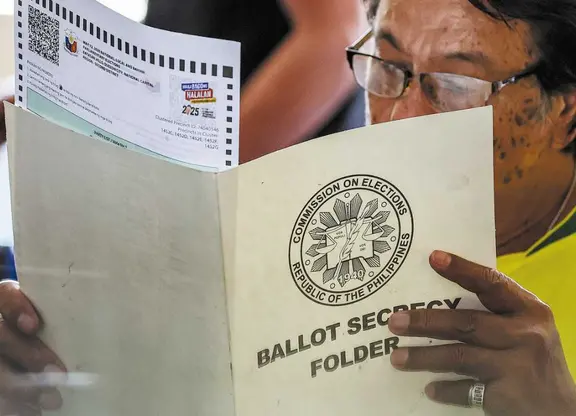
Migrants stand on the balconies of a hotel used as a refugee shelter, after authorities found several cases of coronavirus and put the area under quarantine, following the outbreak of the coronavirus, in Kranidi, Greece, April 21, 2020. /Reuters
Dozens of migrants, including many single-parent families, accommodated at a hostel in the southern town of Kranidi in Greece, tested positive for the coronavirus on Tuesday as the government prepared for a gradual easing of a broad lockdown from April 27.
The 497 people who live and work there were tested after a pregnant woman tested positive last week, the migration minister said. The camp has been under quarantine since April 16.
On Tuesday, test results showed that 150 people had been infected, although none had developed any symptoms of COVID-19, the disease caused by the coronavirus, Deputy Civil Protection Minister Nikos Hardalias said.
"There is no reason for panic," Hardalias told reporters outside the facility. "The measures (we have taken) are adequate to contain the spread of the virus."
Sotiris Tsiodras, the government's chief scientific adviser on the virus, said the country verified 156 more COVID-19 positive cases on Tuesday, and 150 of them were related to the hostel in the small town of Kranidi, some 170 kilometers south of Athens.
With swift a lockdown, Greece has fared better than its neighboring countries Italy, Spain, France and Britain, but concern is mounting over its migrant population.
A UN body, the International Organization for Migration (IOM), which managed the facility, said many people at the complex were from Cameroon and the Democratic Republic of the Congo (DRC). The majority of them were single parents, it said.
"Until now we have not detected any symptomatic patients who may require further care," Tsiodras said. He said a field clinic was being created in the area and the regional medical center would be reinforced.
"It is very important for these people to receive continued support and assistance," said Gianluca Rocco, IOM's chief of mission in Greece.
Related readings:
Over 5,000 people under quarantine as Greece and Malta lock down migrant camps
Greek refugee camps: 'The perfect place for a disaster'

Migrants line up to receive sanitizers outside a hotel used as a refugee shelter, after authorities found several cases of coronavirus and put the area under quarantine, following the outbreak of coronavirus, in Kranidi, Greece, April 21, 2020. /Reuters
In Athens, Tsiodras said that the "R0" (R-naught) factor, a key gauge of how a virus can multiply, was "significantly" below 1 in Greece, meaning that, on average, less than one person could be infected from a person who is already COVID-19 positive.
"That gives us some room to relax the measures, which will be done gradually and carefully," he said.
Greece, which adopted lockdown measures to try to slow the spread of the new coronavirus on March 23, has registered 2,401 infections since its first case surfaced in late February. The death toll is 121.
Government spokesman Stelios Petsas told reporters the cabinet was working on a transition plan to gradually ease the lockdown. He said that judicial services would start to resume on Monday, April 27, when the lockdown is scheduled to end.
Petsas said that next week Prime Minister Kyriakos Mitsotakis would lay out Greece's transition plan, likely to begin by lifting restrictions for lower-risk groups and business activities.
The third refugee site has coronavirus cases
The Kranidi hostel is the third Greek refugee site this month confirmed to have a virus outbreak. Fears are growing about the potential impact of the virus sweeping through refugee camps, particularly in overcrowded sites on the Aegean islands.
On April 2, the Ritsona refugee camp with a population of 2,700, became the first in the country to have positive cases among residents, when a woman who had recently given birth in the local hospital tested positive.
Ritsona was subsequently put under quarantine for two weeks with no residents permitted to leave. According to Al Jazeera, the refugees and migrants there are now still in quarantine after nearly three weeks.
On April 5, the Malakasa camp was also placed under quarantine after a 53-year-old Afghan resident tested positive. Only a few cases have been confirmed among the local population on this island, but none among the refugees in the camps.

Refugees and migrants gather around a firefighting vehicle as a fire burns containers used as shelter in the Moria camp on the island of Lesbos, Greece, March 16, 2020. /Reuters
On the island of Lesbos, the Moria refugee camp has a population of around 19,000 in a space designed for just under 3,000.
Medical charity Doctors Without Borders (MSF) has repeatedly called for the urgent evacuation of the camp.
"In some parts of Moria camp, there is just one water tap for every 1,300 people and no soap available," Dr. Hilde Vochten, MSF's medical coordinator in Greece, said in a statement. "This means that recommended measures such as frequent hand-washing and social distancing to prevent the spread of the virus are just impossible."
On Sunday, a fire tore through the Vial refugee camp on the island of Chios where 5,000 people live in a space designed for just over 1,000, hours after the death of an Iraqi woman living there sparked unrest, officials said Sunday.
The fire late Saturday at Vial camp on Chios island destroyed the facilities of the European asylum service, a camp canteen, tents and many housing containers, according to Migration Ministry Secretary Manos Logothetis.
"A large part of the camp's administrative services was destroyed," said Logothetis, adding that no injuries were reported.
The Iraqi woman had been taken with a fever to a local hospital earlier this week. At the time, a test for the coronavirus had returned negative, Athens News Agency (ANA) reported Saturday.
(With input from agencies)
 简体中文
简体中文













